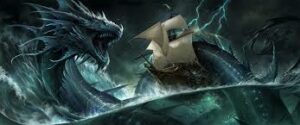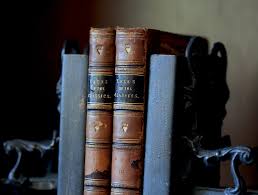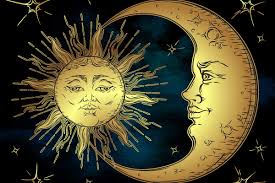
There’s an old saying, now out of style in our “Supersize me!” society,” that goes like this: “My eyes were bigger than my stomach.” It means the food looked damn good, so you ordered (bought, cooked, helped yourself to) all of it and then couldn’t finish it.
The equivalent for readers? “My summer reading ambitions were bigger than my allotted time.” In other words, you say to yourself (or to anyone paid to listen, like your spouse): “Yes! Summer! More time! More vacation! I am going to read so much more than I never had time to get around to in the fall and the winter and the spring!”
Then, alas, Ecclesiastes kicks in. “To everything there is a season: turn, turn, turn.” (Wait! Is that Ecclesiastes or a 60s pop song?) Whatever. You get the idea. You’re on Book #8 of 21 and suddenly bump into that wall called September. Hello!
With that in mind, as promised, here is my summer reading ambitions set out by genre, starting, of course, with poetry.
POETRY
Head Off & Split by Nikky Finney With lots of awards, this book is the one I am presently reading. So far, lots of black history (hey, it’s Rosa Parks!). Some people are allergic to political poetry. And some people say there is a lapse of decorum in hounding Trump staff in public, too. Then again, some people forget there is a lapse in democracy thanks to Trump and his delightful staff lording it over the public by ruling to their base and for the good of their base alone. So I think I’ll give it a fair shot, politics or no.
Blind Huber by Nick Flynn What? A book about a beehive, with a guide loosely based on an 18th-century French beekeeper? When do I get to the ninth level? Is the Queen Bee Lucifer? How hot can a hive bee (sic)? It’s questions like this that will keep me buzzing along, methinks.
Praise by Robert Haas Haas is a household word, but this book goes back to the 70s (as do I), a time when he was just another poet throwing around complimentary words that would turn into a poetry collection. Why did I choose it? There’s a lot left to praise in life, most of it in the natural world, far far away from the front page. I’ll have what he’s having, Sir.
The Master Letters by Lucie Brock-Broido The first blurb on the back, from Herbert Leibowitz, starts so: “Reading The Master Letters is like watching Phiippe Petit walk a tightrope across the space between the two World Trade Center towers without a safety net underneath.” If that line doesn’t enrich the poverty of imagination and hindsight, what does? The book itself is based on three mysterious letters from Emily Dickinson to someone she called “Dear Master.” The Dame of Amherst not only wrote a lot, she inspired a lot.
Lighthead by Terrance Hayes This collection is by the guy who is on the cover of the new Poets & Writers magazine. Its an article that basically promotes his new book, so I will read one of his old books instead. Maybe it will lead me to the new book. Maybe I will someday be on the cover of P & W myself (forget The Rolling Stone). And maybe Ron Charles will drop an offhand, single line about my second book into some column or film clip before the summer ends. That’s a lot of “maybe’s,” but hope wasn’t the last thing out of Pandora’s box (and onto Obama’s posters) for nothing!
Sinners Welcome by Mary Karr The second poem in this collection, “Revelations in the Key of K,” is one I challenge my 8th graders with each year. I think I’ve written about that poem, too. At least I THINK I have. At this point, I’ve written so much, I no longer know what I’ve chosen to write on and what I’ve chosen to pass on. Anyway, if the rest of the book is like her K-centric poem, I’ll be a happy summer camper.
black cat bone by John Burnside This is a British poet. The Brits (and Irish) have been kind to me, publishing a half dozen or so of my poems. The least I can do is read one of their poets this summer. John, you are the man, plus I love love love the cover, which is a scene from Pieter Brueghel’s Return of the Hunters. The Elder rules!
Like a Beggar by Ellen Bass I read a few Ellen Bass poems in Poetry magazine and liked them. I said, “I’ve got to read me some more Ellen Bass poesies.” This is the most recent (though it is four years old) outing for her, so let’s hope the samples match the Whitman as a whole! (Sampler joke, don’t you know.)
Still Life with Two Dead Peacocks and a Girl by Diane Seuss Sometimes you go for books for the cover. Sometimes for the title. This one would be titular. Plus I dig Diane’s author pic. She looks serious and poetic in a way that means business. (And did you know the title is a shout-out to Rembrandt? Me, either. I’ll share titular honors, then, dividing them evenly between Diane and… and… does Rembrandt even have a first name?)
FICTION
Pig Earth by John Berger My first teaching mentor was bananas for John Berger, swearing I HAD to read John Berger, sooner rather than later. Well, I never did. So I hope, first teacher mentor, that you will forgive my later and let “Better later than never at all” in your front door. He’s knocking sheepishly. And his book is set in the French Alps, mountains that happened to fit into my bucket list.
True Grit by Charles Portis Yeah, I know. A John Wayne movie from way back, but I’ve never seen it, and I’ve always seen this book praised as a dark horse, and I like dark horses, and this book sits lonely on my classroom library shelf each school year, scoffed by 8th graders to the last one. Will I have time? Will I like it? Stand by… “grit” is big stuff these days. Let’s see if it’s true, then.
Dept. of Speculation by Jenny Offill It’s a physically small book. It numbers only 177 pages. The font is fairly large. Looks like a novella trying to slip under the wire into novel territory, in other words. Plus Jenny appears to be a hipster. Plus Keats and Kafka (Revelations from the Key of K, maybe?) make kameos. Plus that misspelling was a bad joke.
The Train by Georges Simenon I promised Hemingway, who was forever reading Simenon books in A Moveable Feast, that I would read a Simenon myself someday. Is someday here? I could’ve sworn I saw it on the calendar in one of those July or August squares. Plus I heart trains. And loathe highways clogged with gas-guzzling, texting drivers and, of course, 18-wheelers that look like large coffins on the move and hungry. So The Train is it!
Transit by Rachel Cusk I just finished the first in the trilogy, The Outline, and, after some annoyance, it won me over. So for ha-ha’s, today I threw in Transit and wondered if my eyes were bigger than my reading stomach. News (and stomach ache) at 11.
ESSAYS
The Destiny Thief by Richard Russo I think I read a novel by this bestseller sort long ago, but I was beguiled by the New York Times write-up because the book’s subtitle is “Essays on Writing, Writers, and Life.” Well, hell. Those are three of my favorite things! What could go wrong? (Please see quote from first blurb on the back cover of The Master Letters for Exhibit A.)
How To Write an Autobiographical Novel by Alexander Chee I like this guy’s last name, only I wish it were spelled the Chinese way: Qi. I’m always trying to get my qi flowing, my qi in line, my qi to show me the way (with the help of an acupuncturist, of course). One of the essays is called “The Writing Life” (do you see a trend?) and others “100 Things About Writing a Novel” and “On Becoming an American Writer.” I love simple answers about things like becoming an American writer of renown. They never work, but, as Friend Hemingway once said: “Isn’t it pretty to think so?”
BIOGRAPHY
Grant by Ron Chernow I read this guy’s book, Hamilton, before Broadway got its hands on it and ruined everything by singing. (You should know that, as a kid, I was brought to a play where, some 15 minutes in, the actors started singing, and I famously asked my parents, “Why are they ruining everything by singing?”). I actually received this as a Christmas gift but decided to hold off until summer. Maybe this was an error. Maybe it is the tsunami that would wipe out a summer reading list. Maybe I will hold off until September.
Caravaggio: A Life Sacred and Profane by Andrew Graham-Dixon See above, under “Behemoths That Would Swallow Summer Reading Lists, Moby Dick-like.” Caravaggio has always interested me, though, and maybe if I start, I’ll be unable to stop. With curses like that, who needs blessings?
TEACHING
Beyond Literary Analysis by Allison Marchetti and Rebekah O’Dell Have you ever tried to teach literary analysis? I would say it’s like herding ants, but that would be a cliché. Maybe Marchetti and O’Dell know something I don’t, even after 25 years of teaching. In any event, this goes on the back end of summer, closer to a day that shall not be named (and I don’t mean Lord Voldemort Day, either).
180 Days: Two Teachers and the Quest to Engage and Empower Adolescents by Kelly Gallagher Have you ever tried engaging and empowering every adolescent you are entrusted with teaching–especially when it’s reading and writing you must teach? I would say it’s like herding crows, but that would be cliché.
That’s all, folks. And if you made it this far and the summer’s not over, you deserve an atto-girl or atto-boy yourself! As far as the reading pile goes, though, need I say, “Pray for me?” And need I also say, “We should all have such problems?”
I’m not even going to count how many books this list comes to. That would be bad luck, and who needs bad luck when looking at a TBR pile with such good vibes?









